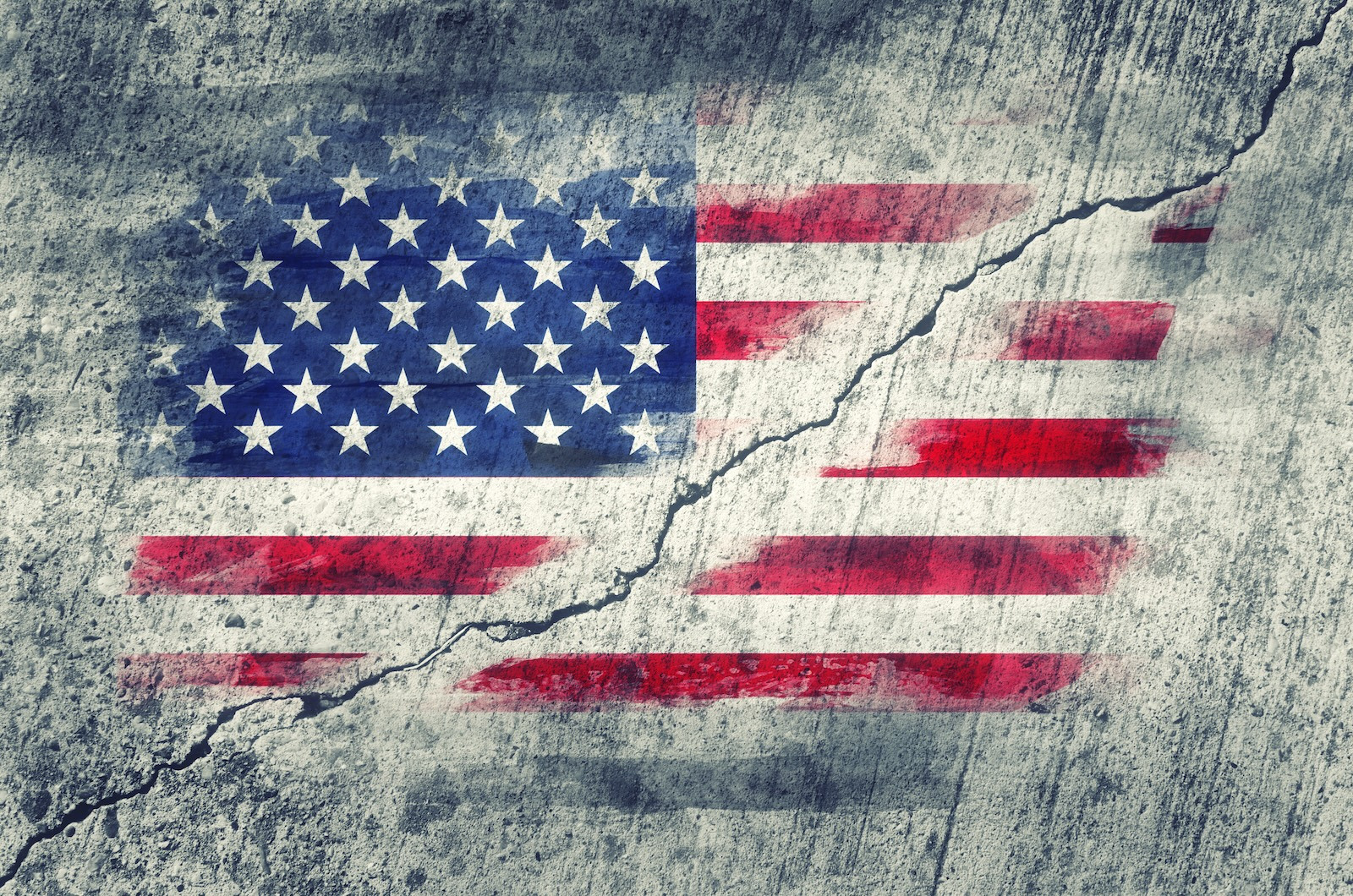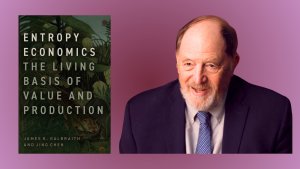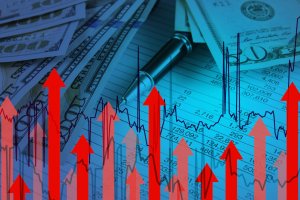In an exclusive interview, Benjamin Page discusses urgent reforms needed to tackle critical challenges, from undemocratic institutions to economic inequality.
The term “democracy in peril” is so often heard these days it seems to have overtaken traditional expressions like “land of opportunity” or “American dream” in the contemporary U.S. lexicon. Norms and institutions are threatened. Concentrated wealth and power leave ordinary people forgotten. Gridlock shackles policymaking.
Political scientist Benjamin Page, professor emeritus at Northwestern University, is a veteran observer of the American political landscape whose research interests include public opinion, policy making, the mass media, and U.S. foreign policy. In a groundbreaking 2014 study with co-author Martin Gilens, Page exposed a disconcerting reality: ordinary citizens wield negligible influence over government policy. Page and Gilens’ data confirmed long-standing suspicions about the predominant role played by the wealthy and business interests in shaping the political landscape.
In the following interview with the Institute for New Economic Thinking, Page reflects on the seismic shifts he has witnessed in American politics, from the promising era of Lyndon Johnson’s Great Society to the current landscape dominated by obstruction, gridlock, and social media frenzy. Drawing parallels with historical periods of crisis, he contemplates the challenges currently confronting our democracy. In doing so, he provides valuable insights into the barriers obstructing progress and outlines his recipe for reform.
Lynn Parramore: You’ve witnessed so much change in American politics over the course of your life and career. What’s fundamentally different now from when you were growing up? What has surprised you?
Ben Page: Back in the sixties, a lot of things looked promising. You had Lyndon Johnson’s Great Society program to tackle poverty and racial injustice. Women were achieving improvements. Change was happening. I thought it looked great!
Fast forward to today, and nothing is happening. It’s all obstruction and gridlock. Polarized parties. Moreover, there’s all this craziness going around in social media — even in so-called mainstream media. Back in the sixties, I wouldn’t have envisioned any of this. I mean, back then, my heavens, Republicans and Democrats thought they disagreed! Even if you look back to the fifties, during the Eisenhower administration, you see that some fairly progressive things happened. It was a Republican administration that was tolerant, open, and in favor of civil rights. More so, actually, than the Democrats at the time. So what a change! The Republican Party is very different today.
LP: American democracy has had several moments of crisis going all the way back to Jefferson, but somehow we’ve hung on and moved forward. We had the Great Depression, but eventually, we got the New Deal. We managed to get something done for ordinary Americans even though there were big challenges baked into the cake, such as the undemocratic nature of the Senate, which you’ve pointed to in your work. Why can’t we seem to address the needs of the people today?
BP: Good question. When you mention the Senate, you’ve put your finger on what I view as the biggest single problem in American politics. The reason the New Deal worked is that at the time, the Democratic Party was this peculiar coalition of conservative Southern Democrats and liberal Northern Democrats. They basically made a deal with each other. The big weakness of the New Deal is that it treated Black people terribly. They were left out of almost everything. That’s why the white Southern reactionary senators went along.
So that’s part of it. Another part of it is that thanks to the Great Depression, there was an enormous majority, a one-party majority in the House and Senate. That’s not the case now.
Another big difference between now and then is these closely divided parties — polarized and closely divided. That’s a recipe for big trouble.
LP: A lot of people around the world are saying that American democracy is failing. Are they right?
BP: When they say democracy may be failing, I would disagree. I think it hasn’t been tried! Really, it’s never fully been tried in the United States. But it’s true that we’re farther from it today than we have been for a long time. The current period is a lot like the first Gilded Age in the late 19th century. Our current situation also has some similarities to the period before the Civil War: sharp polarization, concentrated wealth, and big problems in the political system.
LP: In more recent decades, as the New Deal has been gradually undone, we have experienced economic globalization, which, you note, has boosted the power of the wealthy over working people. You argue that this has been handled particularly badly in the U.S. compared to other wealthy countries. In what ways? Why has that been the case?
BP: If you look at Western Europe, Japan, or pretty much any rich country in the world, they’ve done much better than the United States at creating and maintaining a generous safety net. They’ve done a better job of taking care of people who got wiped out by globalization, who had their jobs go away, their wages go down, and so forth. It’s not astrophysics to know what to do about that. Everybody knows what you can do if you want to. In the United States, there are two big problems. One is lack of will in the sense that we don’t have much of an organized labor movement at this point, and we have enormously powerful billionaires pushing against progressive policies or efforts to reform. We have a Democratic Party that’s dominated by professional people and heavily dependent on liberal billionaires who favor liberal social issues but oppose economic progressivism. That’s a very different scene.
The forces in the U.S. are different, but so is the structure of U.S. politics. Our system just makes it very, very easy to block things. The public doesn’t get its will done mostly because the billionaires and corporate interest groups are able to prevent anything progressive from happening, even when it has popular support. They can prevent taxing capital gains. They can prevent us from enacting a really good safety net. They can keep the earned income tax credit down, etc., etc. Our research shows that even when 70% or 80% of the American public favors a new policy, it usually doesn’t happen. It only happens maybe 35% or 40% of the time. A wealthy minority is able to block things that the majority wants.
LP: Are we witnessing a shift where the few can not only hinder progress but also actively change laws on popularly supported issues, such as reproductive rights? Policies that disproportionately impact the well-being and security of less affluent folks?
BP: Yes, and that, of course, points a finger at the Supreme Court. Republican state legislatures and governors are in on this, but the Supreme Court is crucial. Democracy has not been tried there. It’s an institution that can just do pretty much what it wants to do at changing laws and policies. Sooner or later we’re going to have to deal with that. It’s very tough. It will take a constitutional amendment, probably, but putting term limits on justices would make a very big difference because justices would be appointed more often and would better reflect the politics of today instead of decades ago. We could arrange it so that the court is a bit larger court too. We could arrange for every president to get a few appointments, rather than these Mitch McConnell situations where you cram three, four, five new justices onto the court and completely go against what the public wants about a lot of things. And enlarging the Court could be done within the existing Constitution; Congress could do it.
LP: How much does the reinvigoration of democracy depend on more economic democracy?
BP: A lot, I think. This is a serious problem. Inequality of wealth has gotten so huge that the power of Elon Musk, Charles Koch, and so forth is just overwhelming. The Democratic Party is scared of them. The Democrats have their own favorite billionaires who are generally, as I say, socially liberal but economically conservative. In the end, there are so many pathways by which money can be turned into political power that it may simply be impossible to change things without getting at the structure of the economy and the concentration of wealth. That’s a little discouraging because the political system being screwed up makes it hard to do much of anything. We can’t even get simple taxes on unrealized capital gains. It seems obvious that we’ve got decades of huge gains in the economy from international trade, from automation and so forth, but an enormous amount of that has gone to very few people. They ought to share. But how do you make them share? Philanthropy won’t do it. You’ve got to do it politically, but our system is so messed up that it is very hard to do so.
LP: It’s been rather rare in human history that the wealthy just simply offered to hand over to the people their fair share. They have to feel a lot of pressure.
BP: Actually, a little comment on that. My friends who study comparative politics keep pointing out to me that though the wealthy run things pretty much everywhere, even in Sweden, they run things in a very different way.
LP: How so?
BP: Well, they go along with doing something for workers. It’s an interesting question as to why. One reason, almost certainly, is that labor is so much better organized and more powerful almost everywhere other than the U.S.
LP: Why is it that workers have been able to stay organized in places like Sweden when ours can’t?
BP: Well, you have to ask how they ever got started organizing. In the United States, they barely did. Here, the working class has been divided from the beginning by slavery. That’s a crucial factor. Black strike breakers used to be deployed by bosses who wanted to resist segregated white unions. But beyond that, the union movement has been divided by craft unions versus industrial unions. Labor has been repressed in many ways at many times. The most recent real disaster was probably the 1940s, early 1950s, when Hubert Humphrey and other politicians of both parties basically clamped down on any political left-wing tendencies of labor, purging anybody who’d talked to a Communist Party person ever, and so forth. But the weakness of U.S. labor goes back a long way, and it has deep roots.
LP: Where do you think today’s Democrats should focus on addressing issues faced by ordinary people?
BP: There’s quite a lot of work to do. The Democratic Party is no longer a working-class party the way it was during the New Deal. When you look at voting statistics, professionals are the heart of the Democratic Party now, with some support from Black, brown, and public service workers, but not much support elsewhere in the working class. The professionals are just not enthusiastic about steeply progressive taxation. They like Social Security and Medicare. They like middle-class and upper-middle-class programs, but they really don’t favor redistributing wealth.
LP: Redistribution is kind of a dirty word, even to the Democrats.
BP: If not a dirty word, at least it’s not a banner that you want to wave around and try to march up the hill with. So that’s part of it, but in terms of concrete things, it’s really interesting to look at the Biden administration’s history on tax reform. Joe Biden, to his credit, picked up a whole lot of ideas from Elizabeth Warren and Bernie Sanders about taxes. He actually had what I thought was quite a good tax proposal. But it got watered down step by step in the House and the Senate. Part of that had to do with the Senate being extremely unrepresentative. The Democrats, even when they supposedly control the Senate, are really held hostage by people like Joe Manchin and Kyrsten Sinema. At any given moment there are half a dozen Democrats from red states who are not very interested in progressive economic matters. That’s beyond the control of the Democrats unless we reform the Senate, and that’s one of the key kinds of reforms I favor. Similarly, the Democrats have to get money to run a political party, and they get it from professionals. They get a fair amount of it from really wealthy people.
LP: Research has shown that Democrats receive substantial funding from private equity. Not quite as much as Republicans, it appears, but plenty. There has been a lot of concern about the growing influence of private equity on the political system and its impact on democracy. What’s your take?
BP: A good way to personalize this is to think about Chuck Schumer. A lot of people view him as a very liberal guy, and in many respects he is. But when it comes to Wall Street, private equity, and big banks, he’s their guy.
LP: Can we really disconnect social matters from economic matters? For example, there have been many reports of private equity firms coming into communities and decimating local businesses and negatively impacting people’s livelihoods, their lives. That can’t be helpful for social justice matters either, can it?
BP: Social matters and economic matters come together, particularly as they affect ordinary people, that’s right. But not in the minds of billionaires. I spent quite a bit of time studying the wealthiest billionaires, and it’s pretty clear that close to a quarter or a third of their money goes to Democrats. It’s also pretty clear that the reason it does is almost exclusively social issues. “Liberal” billionaires don’t like MAGA Republicans, their social conservatism, their religious conservatism, and so forth. But I’m afraid the Democratic billionaires… well, I’ve only known one or two in my lifetime, but it’s certainly true of them, they just are not very keen on progressive economic policies.
LP: You’ve expressed your concern about the possibility of a Trump presidency. Can you highlight specific scenarios or policy changes that particularly concern you if that transpires?
BP: Well, let’s see. There’s a spectrum of scenarios you can imagine if Trump were elected again. Some of them are just mild nightmares. Others are truly frightening. I don’t have a crystal ball, but the thing that’s totally clear is that he does not want politics to be run by the majority of average citizens. He wants to disenfranchise people who believe things he doesn’t. Especially persons of color, especially poor people. That’s potentially a very grave danger. It has started already. If it’s carried through to the end, we’re going to have minority rule for a very long time. Definitely not democracy.
LP: What do you think should be done to prevent these frightening scenarios?
BP: The key thing is that there has got to be a bipartisan project to stop Trump. There are a lot of thoughtful Republicans who realize that this is an inflection point in American history. This is a singularity. Something very unusual could happen. A good many Republicans want to stop it. So one thing that reformers or academics or ordinary citizens can do is to help Republicans who want to stop Trump. Make it easy for them to do it without forcing them to vote for a party that they don’t like: the Democrats. Any place we can get fusion tickets, for example, that could really help. Like the old way in New York when the liberal party would get together with the Democrats, but people who hated the Democrats could vote for it.
LP: The fusion possibility is interesting. I think of its occasional successes during challenging periods, such as the 1890s in North Carolina. Despite significant differences, the Republicans and the People’s Party collaborated in state elections, with Black people and white farmers able to unite against Democratic elites. There was backlash, of course, but they got things done — securing the governorship and making strides in voter rights, education policy.
BP: Absolutely. That’s a very important comparison, because back then the Gilded Age resembled the present period. You had a reactionary government like Trump’s — McKinley and so forth. You had a huge concentration of wealth, big wealth power. Rich people owned senators through corrupt state legislatures. So a lot of political reforms were needed. And the People’s Party (the word “populist” seems to have been ruined for all time) was very inclusive as far as working with Black people, women as leaders, and so forth. As you say, those people got together, particularly in the Progressive period, through fusion. They worked on democratic reforms. We got the right for women to vote. We got a direct election of senators. We got a number of achievements out of that period.
LP: How might something like that work today?
BP: Well, I think there are two somewhat separate ways of thinking about it. The immediate crisis concerns stopping Trump. Democrats need to keep talking to Republicans like Liz Cheney, who’s a tremendous force for good on Trump, even though I disagree with her about almost every kind of public policy. Adam Kinzinger from Illinois, ditto. There are a fair number of people like that, including even ex-Trump officials, which is rather amazing. Many of them have become pretty reasonable about the dangers of Trump. So we have to work with those people. On the other hand, they aren’t really part of the democratic reform coalition, just a stop-Trump coalition. I think the more important long-term thing, and it’s getting late to do it, is for the Democrats to start appealing again to workers, all workers, including small-town and rural white workers, including the agricultural workers who’ve been ignored forever. It’s hard for the Democrats because they are a party of professionals. People like me. I sort of look around a room where I’m talking to friends and there’s a little diversity, but not nearly as much as there should be. There are no workers.
LP: You note that a big part of the problem with American democracy is just getting people to the polls. And then there’s making sure there’s somebody they actually want to vote for once they’re there. How do we do that?
BP: You know, we need to have a holiday for election time. Veterans Day is a great choice.
We need to have automatic voter registration. Why should people have to go through a lot of hassle to get the right to vote? That’s ridiculous. We need to make it easy to get your ballot in. That means encouraging – instead of forbidding – people to help collect ballots from nursing homes and the like. There are a string of obvious reforms like that. But the thing that doesn’t get talked about as much is that if you want people to vote, you’ve got to give them attractive choices. We’re stuck in a two-party system. Lee Drutman calls it a two-party “doom loop.” That’s a frightening phrase, but it’s a good way to put it. We need a political system in which people can look at a number of candidates and express more nuanced views. Picking just one out of two unpopular candidates provides no real choice at all. When a third party shows up, plurality voting cannot even guarantee that the least unpopular candidate will win. Most people around the world think the U.S. system is just nutty.
LP: There are only two things on the menu and I don’t want to order either one of them.
BP: Right. Many people don’t like either one. And why don’t we like either one? Well, it has to do with party control of nominations, which happens with these ridiculous one-party primary elections, low turnout of 15 or 20 percent a lot of the time. Very unrepresentative of average citizens. Highly representative of extremist party activists who ring the doorbells, get their friends out to vote. They can nominate yellow dogs or blue dogs or any kind of dogs they want to nominate, and get their dog elected in November in one-party districts. Crazy system!
I have some ideas on how we could get away from that. “Proportional representation, American style.” Give people a lot of choices by having multiple-member congressional and legislative districts within a state. If it’s a big state, create several different mega-districts where you elect four or five congresspeople at once in each. And you do it in a very easy way. You have maybe seven or eight candidates, and voters rank them. Simple computer programs can turn those rankings into the most popular four or five candidates. The great thing is, that way you represent the whole district. Say you’re electing five: any group that has around 20 percent of the population will get at least one official they like, for sure. Important minorities will almost always get representation. It also means that you don’t have so many “representatives” who are unpopular and unrepresentative of large parts of their districts.
LP: What about partisan gridlock? What do you think is the key to cutting through that Gordian knot?
BP: Proportional representation with multi-member districts will help. But I think cutting through that knot is also very closely related to making things more democratic within all our institutions. A lot of gridlock comes from “veto points” among the many officials and institutions that all have to agree on legislation: the House of Representatives (often captured by an extremist minority); or just the Rules Committee within the House; or small groups of Senators who can filibuster; or the Senate itself, if too many of those small, rural red states oppose a progressive policy. There are veto points everywhere. That’s what makes it so difficult to get anything done, especially when there are two parties that are polarized and have roughly equal strength. It means that at any given moment, there’s going to be one obstructive party, almost for sure, that controls at least one veto point.
So here’s the magic trick. If you reform all our political institutions so that they’re all more democratic, reliable, responsive – the House, the Senate, the Supreme Court, the Presidency — then they won’t be as obstructive. And they won’t be so different from each other. They won’t be fighting all the time, and there won’t be as much gridlock among institutions. There will be action and efficiency. But there will also be democratic responsiveness.
LP: You remain optimistic despite all the challenges that face American democracy. What keeps your belief in this system and the idea that it can be reformed alive?
BP: Well, I have bad days, but I am generally optimistic. I think my optimism mostly comes from a sense of history and a sense of what the world is like outside the United States. If the U.S. wants to compete as any kind of great power in the world, it’s on the wrong track. I have quoted President Xi of China because I’m especially interested in China. Xi is saying, you guys basically are failing. Well, there’s something to that. I would hope that is going to lead Americans of all sorts to wake up and take notice. One good moment, in a strange way, was when the Republicans had their bizarre Speaker fights. It was ludicrous. We almost shut the government down. We had trouble raising the debt ceiling. We had trouble approving any sort of government budget. Could hardly do a thing. The world looks at that, and we look at that, and I think an awful lot of principled conservatives – as well as progressives – say, ok, this is intolerable. There’s got to be a change.
So I’m hoping that there’ll be a really large social movement. I hope that millions of people, like during the People’s Party and Progressive periods, will insist on changing the system and making things happen. We’ve done it before.







